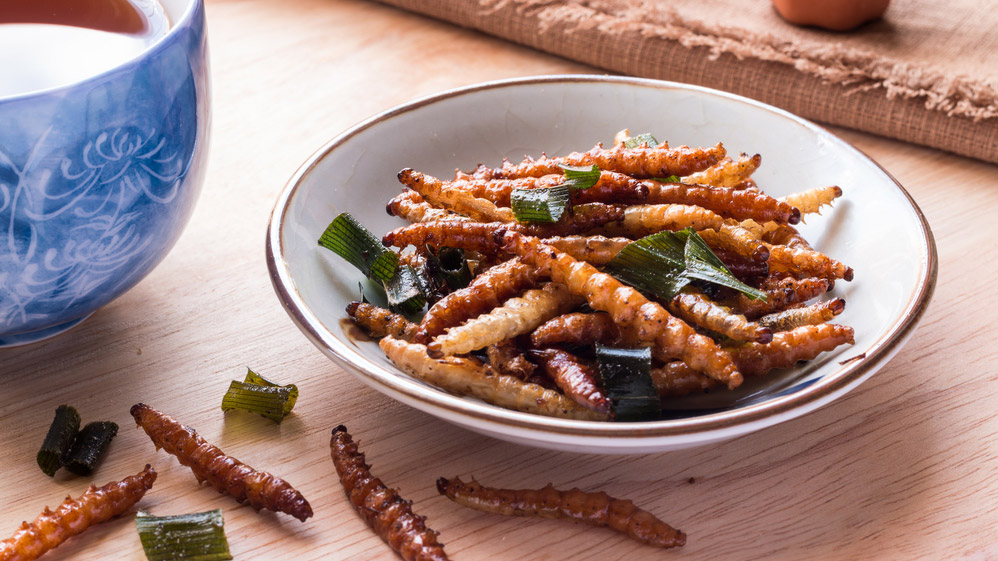In the fictional futures of dystopian sci-fi films, food seems to be heavily processed and synthetic, thanks to a total environmental degradation due to industrialised farming and overpopulation, as hypothesised in films like Interstellar and Blade Runner 2049.
But the future predicted in these films is not that far fetched. Today, nearly 30% of available land on the planet is taken up by livestock and a majority of the world’s crops are fed to these animals. About 90% of the Amazon rainforest is cleared for livestock farming, while agriculture and livestock account for 70% of our water use.
We know that mass-produced meat like beef and chicken contain hormones and antibiotics that may be harmful to humans. A 2014 Harvard study found that just one serving a day of red meat during adolescence was associated with a 22% higher risk of pre-menopausal breast cancer, possibly due to hormone residues in beef. Ocean-caught fish like tuna are no safer due to the presence of mercury, lead, and toxic PCB compounds.

With rising sea levels and global temperatures, it’s getting increasingly harder to farm staples like rice and potatoes, not to mention luxury items like coffee and chocolate. We need innovative ways to make food sustainable for the long run, and safe for consumption.
Meat alternatives
We’re now too familiar with plant-based meat, with brands like Beyond and Impossible opening the market for other similar concepts to proliferate. Today, we have numerous “plant-based meat” brands that are facsimiles of beef, chicken, egg, pork, and even seafood. Singapore has also been the launchpad for several plant-based meat brands, including Karana, ALTN, and NextGen.
Vegetarian food that mimics certain textures of meat has been around for a while in Asia. However, with modern processes, these meat-free products can make ingredients like soybean mimic the taste and even texture of meat. For instance, you can have “bleeding” meat-free patties made with heme.
Everyone knows that having more vegetables and less meat is key to a healthy life, so it’s interesting how plant-based meat became so successful at convincing people to eat processed vegetables that taste like meat, rather than fresh ones.

Lab-grown meat and other foods
For those who’d rather have real meat, there’s “cultured meat” that’s not farmed – they’re actually grown in labs, produced in an incubator where animal cells can proliferate to become meat tissue. Similar to growing fruits in a greenhouse, it’s a sustainable and pollution-free way to create meat.
There’s a lot of foods that are being grown in labs today: beef, lamb, chicken, duck, kangaroo, eggs, milk, and seafood. But it could be a tough sell to get people to adapt to this at first, because they don’t look like steaks, and they’re not going to be cheap due to the research that goes into them.
Singapore was the first in the world to approve the sale of Eat Just’s lab-grown chicken in 2020, and local startup Shiok Meats will start selling their lab-grown lobster and shrimp in 2022. It won’t be long before we see lab-grown beef or foie gras (from duck stem cells) in the market.
Could cultured meat be widespread? On the one hand, it seems more sustainable than factory farming, but on another, what will happen to the livelihood of farmers?

Alternative foods
The future of sustainable food may turn to uncommon sources like bugs. Eating insects isn’t new – you can find them on the menu from Cambodia to Japan and Mexico. Insects are a viable protein supply that’s less intensive to farm and more nutritious by weight, and a number of food companies are looking into insect-based innovations. Singapore startup Altimate Nutrition’s on track to release their cricket-based protein bars and snacks – not a far cry from the cockroach jellies served on board Snowpiercer.
Another forefront of food technology is 3D-printed food – local startup Anrich3D is paving the way with the technology to print food using food-safe filaments that can contain all the nutrients we need. This means a future of printing food like we see in Star Trek could be a reality.

Future of food
Alternative food sources like these are key for humanity if it continues growing at the pace it is. In the sci-fi anime Cowboy Bebop (1998), the Gateway Shuffle episode showed us a familiar scenario about food, where guests complained about how there’s no real “meat” at restaurants anymore. With environmental farming issues and current food innovations, this may well be our future of dining.











